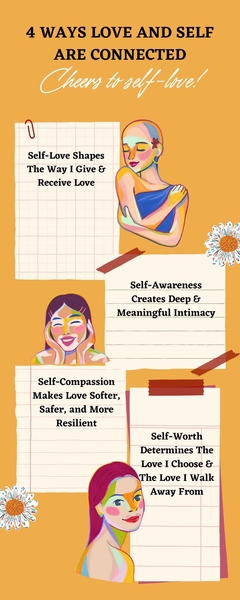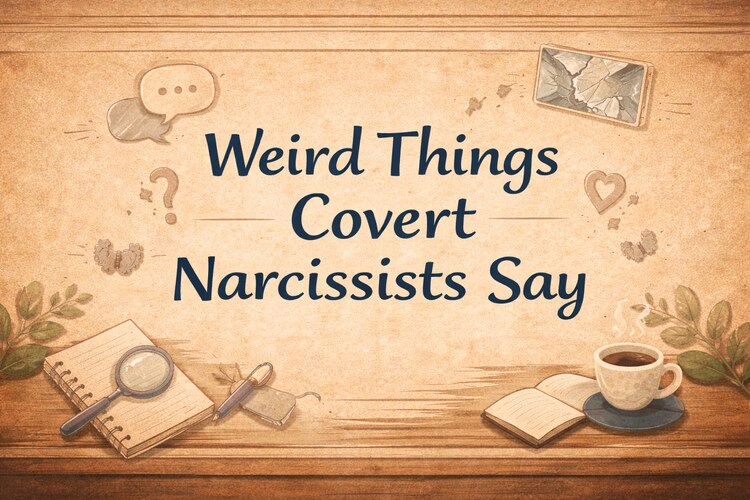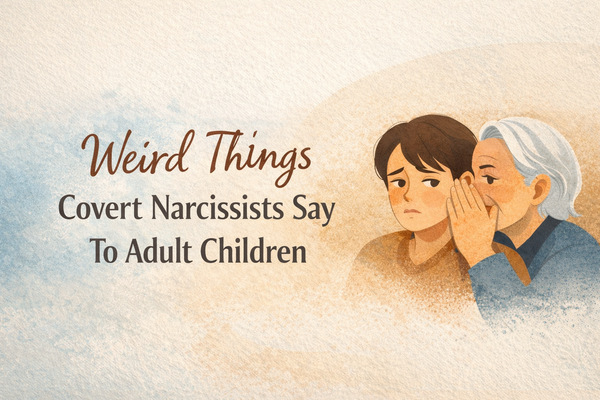Love is one of the most powerful forces shaping human life, yet it remains one of the most misunderstood aspects of human existence. We chase it, crave it, fear it, lose it, rebuild it, and often confuse it with attachment or chemistry. But the older I grow, and the more human lives I witness up close, the clearer one truth becomes:
“Love begins with the self”.
Not self-absorption, not ego, not selfishness, but the quiet, steady relationship I build with my own heart.
The connection between Love and Self is not merely poetic symbolism; it’s emotional, psychological, rational, and even spiritual. The way I treat myself determines the quality of love I give and the kind I allow myself to receive.
To explore this truth meaningfully, we first need to understand what is love and what is self. Only then can we see how beautifully and intricately the two intertwine.
What Is Love?
People tend to think that “Love” is a single emotion. Let me clear this misunderstanding first. Love is an ecosystem of actions, beliefs, decisions, and feelings. A couple of years back, I used to think that love is something that just happens to “us” as if it is something external, dramatic, and unpredictable.
But life experiences have taught me, and I am going to teach you that:
Love is a verb. A choice. A discipline of showing up.
Love includes:
- Attunement: Listening and reading between the lines.
- Commitment: Choosing the relationship even on difficult days.
- Compassion: Seeing the human behind every flaw.
- Presence: Being there not just physically, but emotionally as well.
- Respect: Honoring the boundaries and individuality.
- Vulnerability: Allowing myself to be seen without masks.
Love is not a dependency.
It is also not losing oneself.
It is not emotional martyrdom either.
Love is not the abandonment of Self; it is, in fact, the expansion of Self.
Love asks for courage, consistency, and emotional maturity.
One of my favorite lines says:
“Love is giving someone the power to break you, but trusting they won’t.”
Yet that trust must begin with the self.
What Is Self?
For me, “Self” is the internal map through which I navigate the world. It is not something external or fixed. It evolves, fluctuates, and reforms through experiences.
The Self comprises:
1.Self-concept
How I view myself, i.e, my flaws, my identity, my roles, and my strengths.
2. Self-esteem
How worthy I believe I am of connection, joy, love, and respect.
3.Self-awareness
How deeply I understand my behaviors, emotions, needs, triggers, and wounds.
4.Self-compassion
How gently I speak to myself in moments of failure, pain, or vulnerability.
Together, these elements determine how I show up in my relationships. Whether I show up anxious, avoidant, hopeful, or wounded.
In other words:
“The way I love is shaped by the way I live within myself”.
And that is where the profound connection between Love and Self becomes evident.
The Connection Between Love and Self
Every relationship I experience, be it with a friend, a parent, a sibling, a partner, or a child, passes through the lens of my relationship with myself.
If my self-worth is low, I settle.
If my self-talk is harsh, I criticize others.
If I fear abandonment, I over-give.
If I carry old wounds, I love with fear instead of freedom.
Love is always filtered through the Self.
Psychologist Carl Rogers beautifully described this phenomenon:
“People are just as wonderful as sunsets if you let them be. But to see a sunset, you must first see.”
To truly love, I must first learn to see myself truly and fully.
Let’s move forward into discussing the four most powerful ways Love and Self are deeply connected. The ways that have transformed not only how I understand relationships, but how I show up in them as well.

1. Self-Love Shapes The Way I Give & Receive Love
Before I learned what healthy Self-Love looks like, I used to confuse love with self-sacrifice, including giving more than I had, tolerating what hurt me, and shrinking to keep the peace. All along, I didn’t realize that a lack of Self-Love silently writes the script of every relationship.
Without Self-Love:
- I walk on eggshells around people.
- I accept crumbs.
- I over-explain myself.
- I become a people pleaser.
- I find it hard to say no.
- I stay where I am hurting.
- I become addicted to validation.
Self-Love doesn’t make me selfish.
It makes me a balanced individual.
Self-Love is not looking in the mirror and saying, “I am the best”, or “I am one of the finest creations of God”.
It is simply saying, “I am worthy, imperfect, and evolving”.
And that changes everything.
“The love you give to yourself becomes the love you give to the world”.
You cannot give to the world with an empty glass.
This is where the journey of Love and Self begins, at the point where I finally choose myself.
2. Self-Awareness Creates Deep & Meaningful Intimacy
I cannot offer or receive intimacy if I do not understand myself.
Intimacy is not just physical closeness. It is emotional connectivity and exposure.
But the emotional exposure requires:
- Recognizing my fears.
- Knowing my trigger factors.
- Understanding my attachment style.
- Being honest and upfront about my desires.
- Processing my old wounds.
- Exploring my old wounds.
Without this, love becomes confusing, reactive, or repetitive.
Patterns repeat even when partners change.
With self-awareness, I step into relationships consciously, unconsciously repeating childhood scripts.
Deep intimacy is born from this honesty.
For more on attachment-based self-awareness, I often refer to this resource:
Attachment Theory- Simple Psychology.
Intimacy begins when self-awareness allows me to show my heart without hiding.
3. Self-Compassion Makes Love Softer, Safer, and More Resilient
I used to think that strength in relationships meant being tough, selfless, and emotionally unaffected. But the true backbone of healthy love is self-compassion.
Self-compassion means:
- Forgive myself for my past shortcomings.
- Giving myself grace and space.
- Comforting myself instead of criticizing and passing harsh comments.
- Allowing myself to make mistakes without shame.
- Speaking to myself in a way as if someone I love.
When I practice self-compassion:
- I listen more.
- I judge less.
- I become less reactive and more responsive.
- I apologize sincerely rather than superficially.
- I communicate without fear.
On the contrary, when I lack self-compassion:
- I personalize the conflicts.
- I become defensive.
- I catastrophize.
- I blame myself for everything that goes wrong.
- I misinterpret everything.
A self-compassionate heart creates a compassionate relationship.
Self-compassion is an instrument that softens the sharp edges in myself and in the love I deliver.
It makes room for understanding.
It makes conflict bearable and survivable.
It makes forgiving natural and easy.
For practical guidance, Kristin Neff’s research on self-compassion is invaluable.
4. Self-Worth Determines The Love I Choose & The Love I Walk Away From
This is the deepest truth I have learned:
I do not get the love I deserve.
I get the love I believe I deserve.
Low self-worth forces me to accept:
- Unavailable partners.
- Mixed signals.
- Emotional unreliability.
- Chaotic and unstable relationships.
- One-sided effort.
- Silence where communication should exist.
High self-worth makes me choose:
- Emotional safety.
- Security.
- Consistency.
- Clarity.
- Healthy affection.
- Respect.
- Mutual effort and understanding.
High self-worth doesn’t guarantee a painless love.
But it certainly guarantees an honest one.
It guarantees that I do not abandon myself to keep someone else happy.
Self-worth teaches me:
Love should feel like connection, not survival.
Like peace, not confusion.
Like mutuality, not begging.
This is the point where Love and Self merge fully. Because the moment I believe in my worth, love transforms automatically.
Bringing It All Together: The Dance Between Love and Self
As I sit across my office table, sipping warm winter coffee, I reflect on my journey with relationships. With others as well as myself. I have concluded that Love and Self are not separate paths. They are a continuous dance, a conversation between my inner world and the outer world of connection. When I invest in understanding myself, nurturing myself, and valuing myself, I inevitably raise the standard of love I give.
I have learned that love without self-awareness is delicate. It falters at the first sign of discomfort, the first disagreement, the first reflection of my own insecurity. And yet, when I cultivate Self-Love, self-compassion, and self-worth, love becomes resilient, mature, and deeply freeing.
Every time I honor my needs without feeling guilty, every time I speak to myself with kindness instead of criticism, I am actively shaping the relationships I attract. This phenomenon is called “The Law Of Attraction”. The love I offer is no longer transactional, anxious, or dependent. It is authentic, abundant, and rooted in truth.
“The better I care for my own soul, the more I can truly care for others’ souls.”
The beautiful paradox is this:
The more I love myself, the more I am capable of loving someone else in my full capacity. Not because I need them to fill gaps, but because I have cultivated wholeness inside.
A Personal Invitation
If there is one take-home message I hope you carry with you, it’s this:
“Your relationship with yourself is the blueprint for every relationship you will ever have”.
Spend time nurturing it. Speak to yourself with kindness and compassion. Respect your boundaries. Allow yourself to be vulnerable yet protected. And in the process of doing so, you will notice a shift, not just in your love for others, but in how the world responds to you.
Love is abundant when the Self is nourished. Love is sustainable when the Self is secure. Love is healing when the Self is compassionate.
My dear young readers,
I invite you to try this today:
Reflect on a small way you can show yourself love. It could be a gentle thought, a forgiving statement, or a healthy boundary. Notice how that small act ripples outward, touching your relationships, your friendships, your family ties, and even your workplace connections. That is the power of Love and Self intertwined.
If you find it hard to build a connection between Love and Self, YouthTableTalk is always at your service.
FAQs
1. Can I love someone fully without Self-Love?
Sure, you can. But it can become imbalanced and drain you completely. If you keep pouring from a hardly filled cup, you will run out of energy.
2. Why does self-awareness matter so much in love?
Because it prevents unconscious patterns from repeating and builds emotional safety in a relationship.
3. How does self-compassion help relationships?
It reduces reactivity, increases tolerance and patience towards others, strengthens communication, and promotes healing.
4. What if my partner lacks Self-Love?
It becomes one-sided then. Relationships can survive it, but they require more communication and promote healing.
5. What is one practical step to strengthen both Love and Self today?
Write down: “What emotion am I feeling right now, and what do I need?”. Then honour that need.
References
- PhilPapers: All About Love: New Visions (bell hooks)
- Book details: First edition, William Morrow, 2000
- Open Library entry: All About Love: New Visions
- Annual Review of Psychology: Self‑Compassion: Theory, Method, Research, and Intervention (2023)
- Self‑Compassion research page by Kristin Neff (her own website)
- Original Self‑Compassion Scale development: Neff, K. D. “The Development and Validation of a Scale to Measure Self‑Compassion” (Self and Identity, 2003)
- Cambridge Journal Review: The Compassionate Mind, Paul Gilbert, Constable & Robinson, ISBN 9781849010986
- Book details on Barnes & Noble: The Compassionate Mind by Paul Gilbert
- Publisher info and summary: Shakespeare & Company listing
Dr. Talia Siddiq is a resident psychiatrist in training at Dr. Ruth K.M. Pfau Civil Hospital Karachi, deeply passionate about understanding the human mind and helping people find healing. Beyond her clinical work, she is also a writer who believes that mental health conversations should be easy, relatable, and stigma-free.
She started writing in 2020, turning her reflections and experiences into articles that speak to the struggles many young people silently face—whether it’s self-harm, addictions, relationships, or simply finding direction in life. Over time, her writing has expanded into areas like career guidance and financial independence, because she strongly believes that resilience isn’t just about surviving emotionally—it’s about building a meaningful, balanced life.
For Talia, YouthTableTalk is more than a blog. It’s a safe corner on the internet where young people can pause, reflect, and feel understood. Her goal is not to lecture but to have a conversation—just like a friend who listens, shares, and gently guides you toward growth.
When she isn’t studying psychiatry or writing, you’ll often find her reading, exploring self-growth books, or cooking something new for her family. She brings the same curiosity and compassion to her personal life that she does to her work: always seeking better ways to connect, learn, and inspire.
Through YouthTableTalk, she hopes to remind every reader of one simple truth: you’re not alone, and your story matters.
- Talia siddiqhttps://www.youthtabletalk.com/author/talia-admin/
- Talia siddiqhttps://www.youthtabletalk.com/author/talia-admin/
- Talia siddiqhttps://www.youthtabletalk.com/author/talia-admin/
- Talia siddiqhttps://www.youthtabletalk.com/author/talia-admin/






